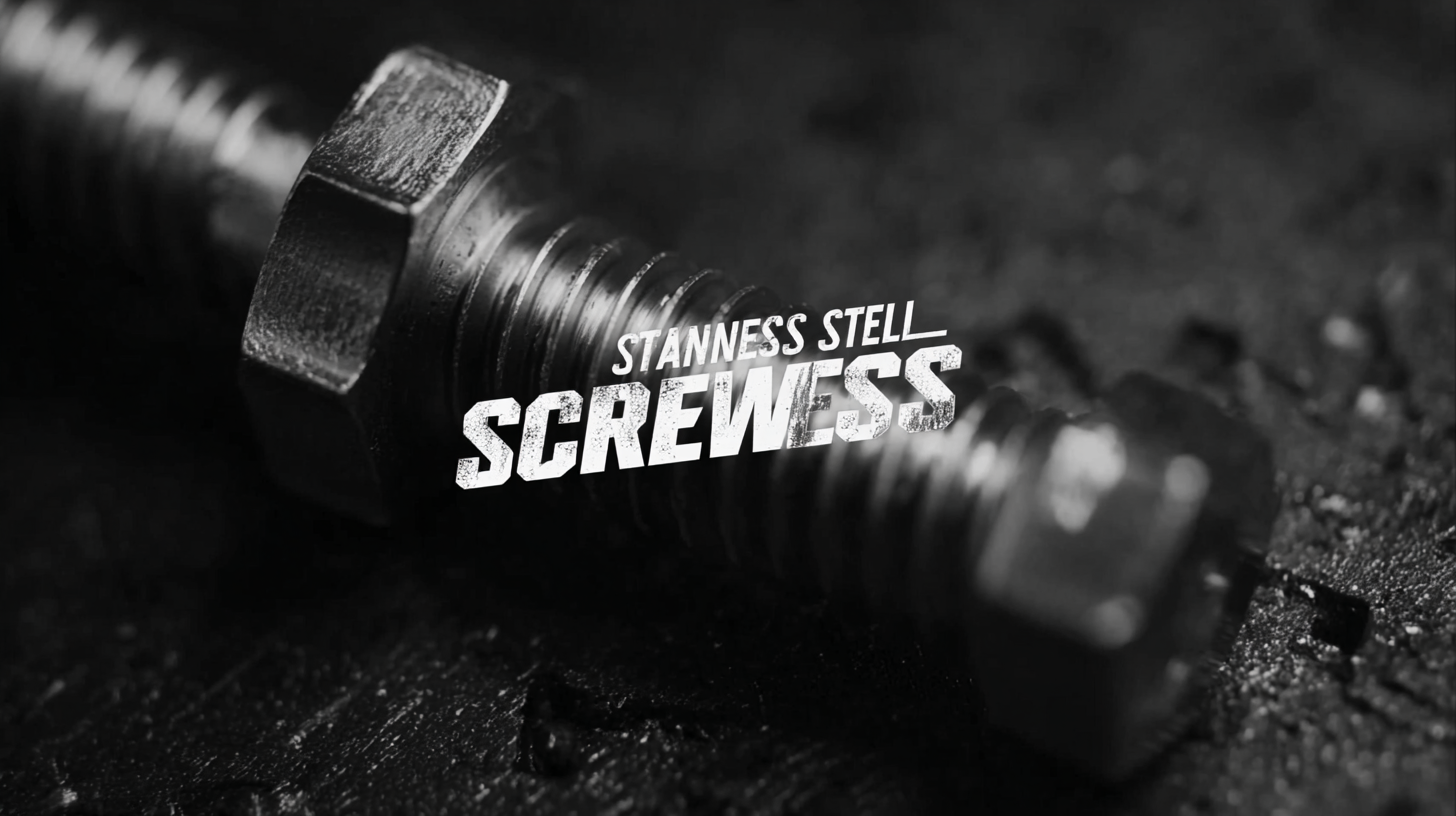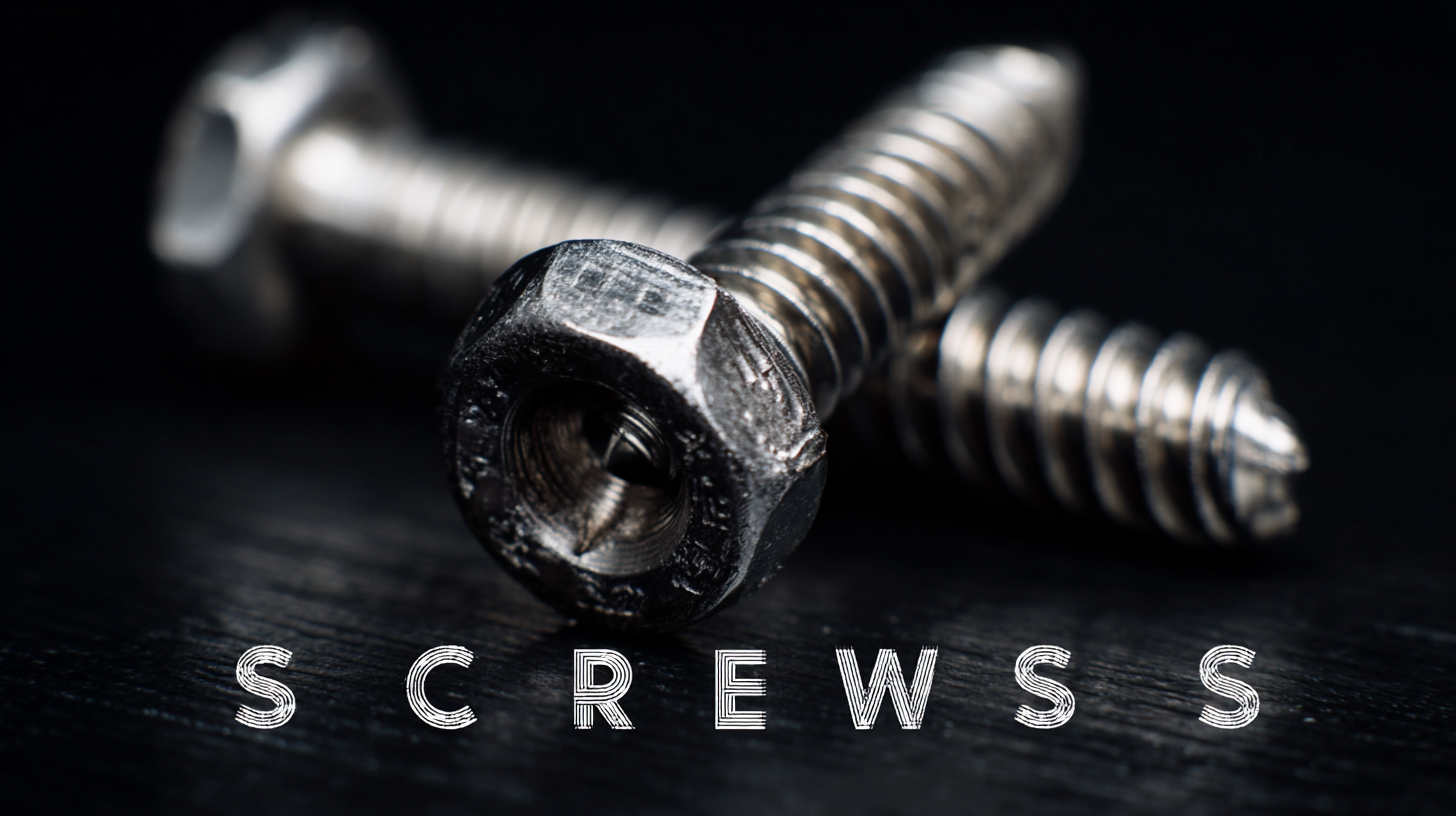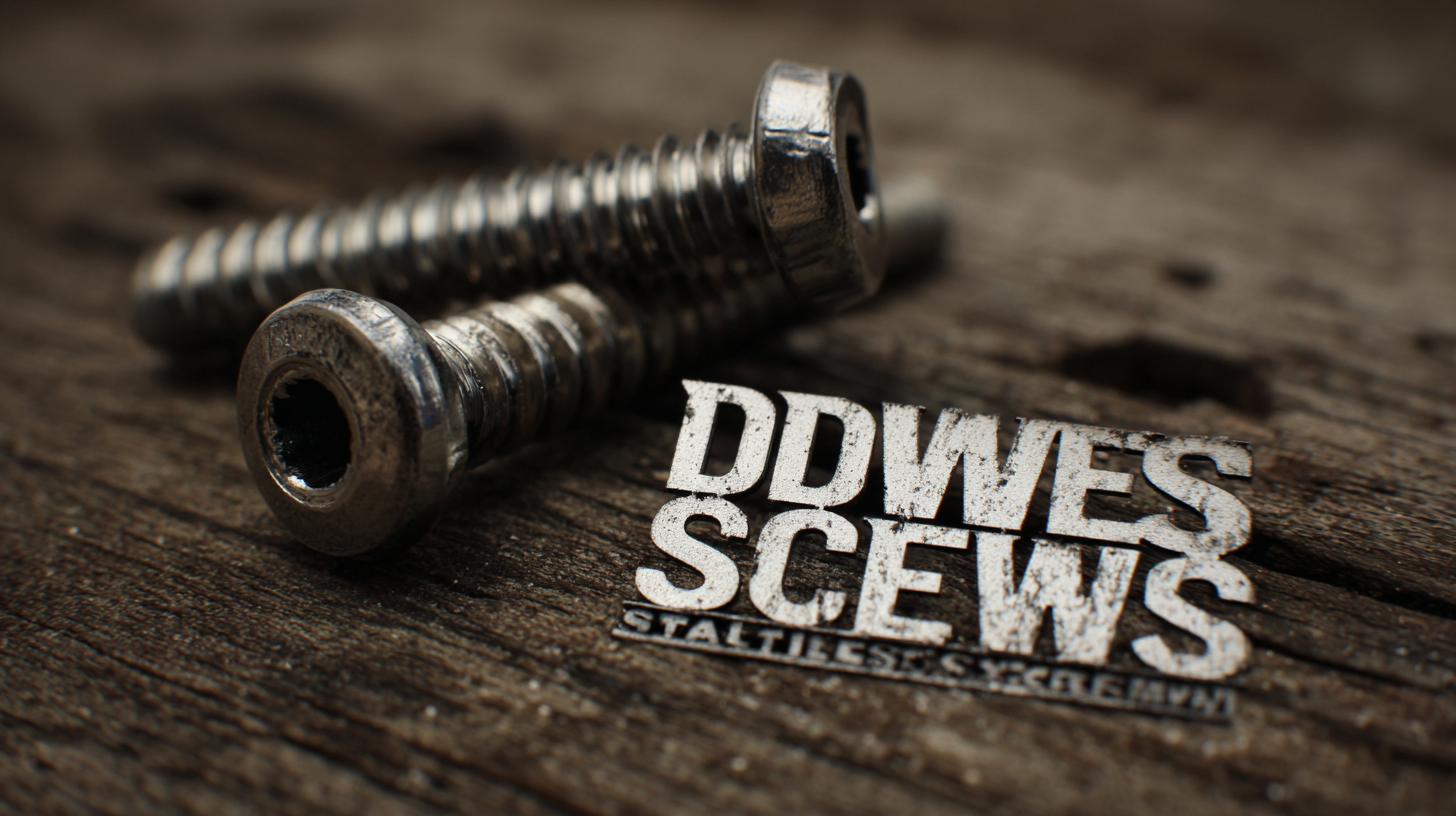
Discover the Advantages of Using Best Stainless Steel Screws for Superior Durability and Performance
The demand for high-quality stainless steel screws has surged in various industries, driven by the need for superior durability and performance. According to a recent report by IMARC Group, the global stainless steel fasteners market reached a value of approximately $14 billion in 2022 and is projected to grow significantly in the coming years. Stainless steel screws, known for their resistance to corrosion, high tensile strength, and longevity, are becoming the preferred choice for applications in construction, automotive, and manufacturing sectors. The characteristics of these screws ensure that they can withstand harsh environmental conditions, making them indispensable in projects where reliability is crucial. As industries increasingly prioritize longevity and maintenance reduction, understanding the advantages of stainless steel screws is essential for achieving optimal performance and efficiency in various applications.

Advantages of Stainless Steel Screws Over Traditional Fasteners
When it comes to choosing fasteners for projects that demand durability and reliability, stainless steel screws stand out significantly over traditional fasteners. One of the primary advantages of stainless steel screws is their enhanced resistance to corrosion, which is crucial in industries exposed to moisture or harsh environmental conditions. Unlike conventional screws, stainless steel fasteners maintain their integrity and aesthetic appeal even when subjected to challenging elements, offering long-term performance and reducing the need for frequent replacements.

Moreover, advancements in screw manufacturing techniques have further elevated the performance of stainless steel screws. For instance, newer designs exhibit increased strength and grip ranges, catering to various applications from automotive to structural needs. With the introduction of specialized screws designed to withstand uplift and lateral loads, the versatility of stainless steel fasteners has been expanded. As industries continue to innovate, the reliability and efficiency offered by these fasteners reveal why they are increasingly favored over traditional options.
Common Problems Associated with Poor Quality Screws
When it comes to construction and assembly, the quality of screws plays a pivotal role in ensuring durability and performance. Poor quality screws can present a variety of problems that may jeopardize the integrity of your projects. One of the most common issues is corrosion, especially in environments exposed to moisture. Inferior materials can lead to rusting, weakening the screws over time and ultimately risking structural failure. This is particularly concerning in applications where safety is paramount, such as in outdoor installations or marine settings.
Another significant problem associated with low-quality screws is stripping. Screws made from substandard materials tend to have less effective threading, which can easily strip out when torque is applied. This not only makes the screws ineffective in holding components together but can also lead to frustrating setbacks during assembly. In contrast, using high-quality stainless steel screws mitigates these risks, providing enhanced resistance to both corrosion and mechanical stress, ensuring a long-lasting and reliable performance in any application.

How Stainless Steel Screws Enhance Longevity in Various Environments
When it comes to ensuring the longevity of various structures and applications, stainless steel screws stand out as an optimal choice. These fasteners are renowned for their resistance to corrosion, rust, and staining, which is particularly advantageous in harsh environments. According to a report by the Fastener Quality Act, stainless steel screws demonstrate a lifespan increase of up to 50% compared to their carbon steel counterparts when exposed to moisture and salt conditions. This enhanced durability is critical for industries ranging from construction to marine applications, where environmental stresses can drastically shorten the lifespan of conventional screws.
Tip: When selecting stainless steel screws, look for grades 304 and 316, as these offer superior resistance to corrosion. Grade 316, in particular, is ideal for marine environments due to its higher nickel content and molybdenum, which provide increased protection against chlorides.
Furthermore, stainless steel screws also excel in temperature stability, maintaining integrity under extreme conditions. This characteristic greatly benefits industries such as aerospace and automotive, where mechanical components might experience significant thermal fluctuation. According to the American Fastener Manufacturers Association, utilizing high-quality stainless steel fasteners can lead to reduced maintenance costs and extended service life, ultimately translating to better performance in demanding applications.
Tip: For the best results in heavy-load applications, consider using screws with a coarse thread design, which can provide improved grip and stability in demanding conditions.
Discover the Advantages of Using Best Stainless Steel Screws for Superior Durability and Performance
| Feature | Description | Advantages | Ideal Environments |
|---|---|---|---|
| Corrosion Resistance | Stainless steel is highly resistant to rust and corrosion. | Longer lifespan, reduced maintenance costs. | Marine, chemical, and outdoor environments. |
| Strength | Stainless steel screws offer high tensile strength. | Greater load-bearing capacity, less risk of breakage. | Construction, automotive, and industrial applications. |
| Aesthetic Appeal | Screws have a shiny finish that is visually appealing. | Enhances the overall look of applications. | Furniture, artwork, and decorative purposes. |
| Temperature Resistance | Withstands extreme heat and cold. | Suitable for diverse climates, ensures reliability. | HVAC systems, outdoor installations. |
| Low Maintenance | Requires minimal upkeep compared to other materials. | Cost-effective over time, saves labor. | Various environments, especially harsh ones. |
Factors to Consider When Selecting the Right Stainless Steel Screws
When selecting the right stainless steel screws for your projects, there are several key factors to consider. First, it's essential to determine the grade of stainless steel you'll need, as different grades provide varying levels of corrosion resistance and strength. For instance, 304 stainless steel is ideal for general use, while 316 stainless steel offers superior performance in marine environments due to its enhanced resistance to saltwater corrosion.
Another important consideration is the screw's thread type. Choosing the correct thread type can significantly impact the screw's holding power and the materials being joined. For example, coarse threads are better for soft materials, while fine threads provide maximum grip in hard materials.
Lastly, pay attention to the screw head style and drive type. Options like hex, flat, or Phillips heads can affect installation and ease of use. Consider which tools you have available and the accessibility of the installation site when making your choice.
Tip: Invest in high-quality screws from reputable manufacturers to guarantee better performance and reduce the risk of stripping or breaking during installation.
Real-World Applications Showcasing Superior Performance of Stainless Steel Screws
Stainless steel screws have gained immense popularity across various industries due to their exceptional durability and performance. In real-world applications, these fasteners have showcased their ability to withstand harsh environmental conditions, making them ideal for marine, construction, and automotive uses. For instance, in marine applications, stainless steel screws are resistant to corrosion caused by saltwater exposure, ensuring a longer lifespan and maintaining structural integrity in boats and coastal structures.
Another remarkable example can be seen in the construction industry, where stainless steel screws are used in outdoor installations such as decks and facades. The screws provide not only the strength needed to support heavy loads but also resist rust and staining, which preserves the aesthetic appeal of buildings over time. Additionally, in the automotive sector, stainless steel screws offer reliable performance in automotive assemblies, where durability and resistance to environmental factors are crucial for safety and efficiency. These real-world applications highlight the invaluable role of stainless steel screws in enhancing performance and durability across diverse fields.
